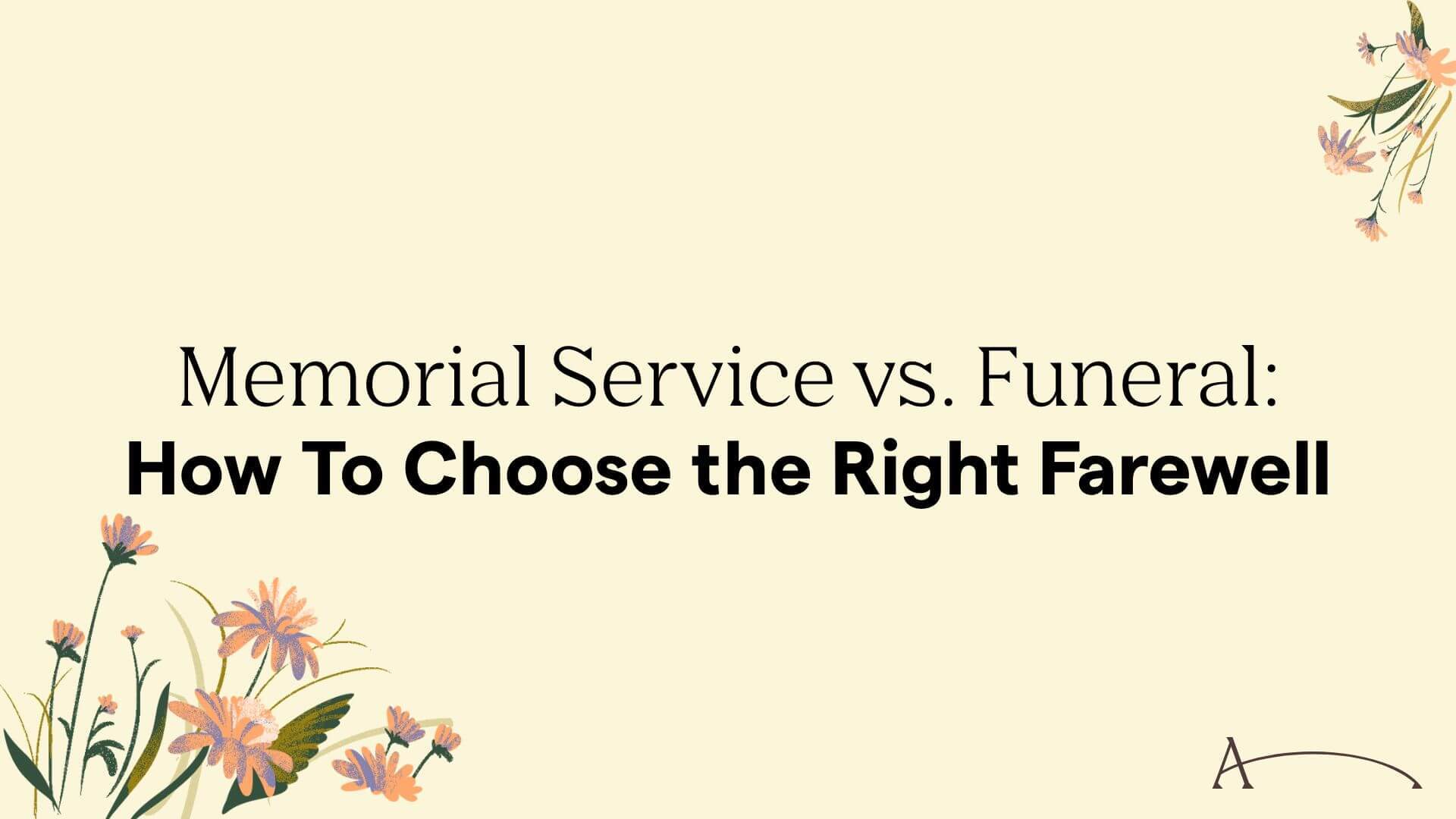
It pays to plan ahead
Preplan your own funeral arrangement online in minutes
Arrange Immediate
Cremation Services
Cremation Services
Speak to our dedicated care specialists now
Some Christians debate about whether cremation is a sin or not. One side believes cremation disrespects the body as God’s creation. Others point out that the Bible never forbids cremation and that God can resurrect regardless of how the family handles the remains.
This article explores the difference between “unbiblical” and “sinful,” how Christians use biblical principles to make moral decisions, and how different denominations and traditions view cremation. It also considers practical factors like cost, environment, and family wishes.
Not sure whether a cremation is the right path? The team at After is here to guide you through your options with transparency, care, and zero pressure. You can call us 24/7 at 1-844-717-5170.
{{cta_red}}
The Difference Between “Unbiblical” and “Sinful”
Many people ask: Is cremation a sin in the Bible? The answer starts with a distinction between what is “unbiblical” and what is “sinful.”
Scriptures don’t directly mention cremation. Silence in the Bible does not automatically mean prohibition. For example, the Bible does not mention modern technology, but Christians still apply biblical principles to decide how to use it wisely.
Christians rely on principles such as holiness, stewardship, and dignity when making moral decisions. These values guide choices even when there is no explicit command.
Romans 14 highlights this approach, teaching that when Scripture is silent, believers should follow their conscience and avoid condemning others who reach different conclusions.
Cremation fits within what Paul calls “disputable matters.” Like food laws or worship days in the early church, cremation is a practice where personal conviction, prayer, and respect for others should guide the decision.
Why Some Christians Believe Cremation Is A Sin
When Christians raise the question, “Is cremation against the Bible?” they often point to concerns about how you treat human remains.
Reverence For The Person
Some Christians argue that the physical body deserves burial because it is the temple of the Holy Spirit (1 Corinthians 6:19). From this perspective, cremation seems to disregard the sacredness of God’s design.
Historical Opposition
The early Church strongly opposed cremation. Burial mirrored the burial of Christ and expressed hope in the resurrection of the person. Christians buried their dead as a public statement of faith, in contrast to pagan practices of cremation.
Symbolism Of Fire
Fire often carries negative associations in Scripture, such as judgment or destruction. For Christians who see the individual as a seed sown in hope (1 Corinthians 15:42–44), burial reflects the biblical image more closely than cremation.
Role Of Tradition
In certain denominations, especially Eastern Orthodoxy, tradition has great authority. They see burial as an inherited practice tied to theology.
Association With Pagan Practices
In the ancient world, Roman and pagan rituals involved cremation. To distinguish themselves, early Christians chose burial. That association continues to shape why some Christians feel cremation is sinful or unfaithful.
Why Others Believe Cremation Is Not A Sin
Other Christians answer the question, “What does the Bible say about cremation” differently, focusing on God’s power and the spiritual nature of faith.
God’s Power To Resurrect
Christians who support cremation emphasize that resurrection does not depend on the physical state of the individual. Believers lost in war, burned at the stake, or buried at sea are no less capable of experiencing resurrection. God’s power is not limited by human circumstances.
Focus On The Spirit
The Bible teaches that the spirit is eternal while the earthly body is temporary (2 Corinthians 5:1–8). For Christians who highlight this teaching, cremation does not compromise faith because salvation depends on the spirit’s union with God, not the preservation of physical remains.
Practical And Compassionate Reasons
Cremation often arises from practical needs. Cemeteries in cities may have limited space. Cremation is usually more affordable than burial, easing financial burdens. In times of crisis, such as pandemics or natural disasters, cremation can be a compassionate solution for grieving families.
Cultural Shifts
Over time, Christian communities have shifted toward greater acceptance of cremation. Many modern funerals incorporate cremation while still including Scripture, hymns, and prayers. The emphasis has moved toward how families express faith, rather than the specific method of handling remains.
Freedom In Christ
Christians also point to the freedom found in Christ (Galatians 5:1). When the Bible does not forbid something, believers are free to act in faith according to conscience. This principle reassures families that cremation can be a valid, God-honoring choice.
How Christian Denominations View Cremation
Christians often ask, “Is cremation a sin in the Bible, or does it depend on tradition?” The answer varies across denominations.
Roman Catholic Church
The Catholic Church once forbade cremation, associating it with a denial of resurrection. Since 1963, they have permitted cremation, but burial is still preferable.
Protestant Traditions
Protestant churches, including Lutheran, Methodist, Presbyterian, and Baptist traditions, generally permit cremation. They stress personal conviction, stewardship, and family decision-making. Cremation is not seen as against the Bible, provided it occurs respectfully.
Eastern Orthodox Church
The Orthodox Church discourages cremation and strongly favors burial. For Orthodox believers, burial reflects reverence for the person and faith in Christ’s resurrection. They consider cremation as inconsistent with church teaching.
However, the bishop may approve a cremation in exceptional circumstances if the manner of one’s death necessitates cremation. Practices can also vary among different regions.
Evangelical And Non-Denominational Churches
Evangelical and independent churches typically leave the decision to individuals and families. They emphasize freedom of conscience and encourage prayerful decision-making. Cremation is acceptable if families believe it aligns with their faith.
Factors Beyond Theology
Many Christians also weigh practical issues when asking, “Is cremation a sin?” Faith, family, and finances all play a role.
Cost Considerations
Cremation is generally less expensive than burial. Families under financial pressure often find cremation a practical solution and cost-effective option.
Environmental Considerations
Cremation requires less land than burial. However, it produces carbon emissions. Alternatives such as aquamation and green cremation can also provide environmentally friendly options.
Family Wishes And Cultural Expectations
Decisions often reflect family unity and cultural values. Some families prioritize tradition, while others value flexibility. When you make a decision that respects family wishes, it can bring peace and comfort in grief.
How to Plan a Cremation in Line With Christian Beliefs
Families may still wonder how to plan cremation in a way that aligns with Christian beliefs. One option is to include worship and Scripture in the service. Readings from Psalms or resurrection passages can affirm faith. Families may choose to hold a memorial in a church before or after cremation.
Respectful treatment of the remains is also important. Many families place them in a cemetery, columbarium, or burial plot. Pastors often guide families to ensure the process honors both faith and loved ones.
Services like After offer direct cremation with the flexibility to include faith-based memorial elements. This allows families to combine practicality with respect for spiritual convictions.
Arrange a Respectful Cremation Aligned With Your Faith
Is cremation a sin for Christians who follow the Bible? The answer is no, cremation is not inherently sinful. The Bible does not forbid it.
The Christian view on cremation varies across traditions, but most agree on approaching cremation with reverence and a prayerful mindset.
Families can choose cremation while still honoring Christian values through memorial services, respectful treatment of ashes, and worship centered on hope in Christ.
After provides compassionate cremation services that allow families to plan in line with their faith and cultural needs. If you need answers, our team at After is here to guide you through your options with transparency, care, and zero pressure. You can call us 24/7 at 1-844-717-5170.
{{cta_red}}
Frequently Asked Questions
Does The Bible Forbid Cremation?
The Bible does not forbid cremation. Scripture never commands burial as the only option, though it was the common practice in biblical times.
Because of this, cremation is generally treated as a matter of personal conviction.
How Do Different Denominations View Cremation?
Different denominations view cremation in varied ways. The Catholic Church permits it but requires that you bury ashes or entomb them. Protestant traditions generally accept it as a personal choice.
Jewish beliefs and Orthodox churches discourage cremation and strongly prefer burial. Evangelical and non-denominational groups emphasize freedom of conscience.
Why Did Early Christians Prefer Burial?
Early Christians preferred burial because it mirrored Jesus’ burial in the tomb. Burial also served as a public declaration of faith in bodily resurrection. Rejecting cremation distinguished Christians from pagan practices, where cremation was more common. This history still influences some traditions today.
Is Cremation Less Respectful Than Burial?
Cremation is not less respectful than burial when carried out with dignity. Both methods can honor the individual when accompanied by Scripture and prayer. The level of respect comes from intention and treatment, not the method itself. Families can choose either in line with faith and conscience.
Does Cremation Go Against A Christian’s Belief In The Resurrection?
Cremation does not go against a Christian’s belief in the resurrection. God’s power to raise the dead is not limited by how you treat remains. Christians believe that martyrs burned at the stake and those lost at sea will also experience resurrection. Resurrection depends on God, not the individual’s condition.
Can You Have A Christian Funeral With Cremation?
You can have a Christian funeral with cremation. Services may include the same elements as a burial funeral, such as hymns, Scripture readings, and eulogies. Many families hold the service in a church or chapel before or after cremation. Pastors can help shape the service to reflect faith traditions.
How Do I Plan A Christian Cremation Service?
You plan a Christian cremation service by including worship, prayer, and Scripture. Families often read resurrection passages, sing hymns, and treat ashes with reverence. Many churches allow memorial services alongside cremation, offering flexibility. Consult a pastor to ensure the service aligns with Christian faith and family wishes.
Dallin Preece
CRO, After.com - Cremation & Preplanning Divisions
Published Date:
August 29, 2025


%20(1).png)


%20(1).png)
%20(1).png)




.png)
%20(1).png)
%20(1).png)

